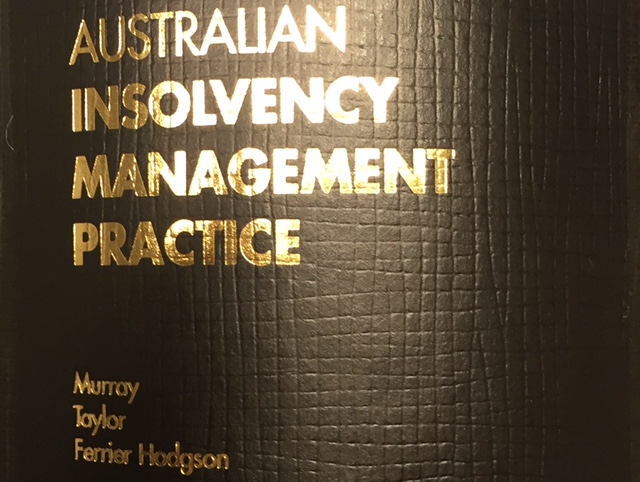
Single touch payroll – on its way into law
The Senate Standing Committee on Economics has given a report on the Budget Savings (Omnibus) Bill 2016 and has endorsed the Bill’s provisions for single touch payroll.

The Senate Standing Committee on Economics has given a report on the Budget Savings (Omnibus) Bill 2016 and has endorsed the Bill’s provisions for single touch payroll.

A rather unsatisfactory situation is developing in the nation’s federal and state superior courts in their exercise of shared jurisdiction under the Corporations Act. This concerns

QUT is holding its international personal insolvency conference in Brisbane tomorrow and Friday – 8-9 September 2016 – with speakers presenting from the US, the

In its major review of competition law, the government proposes to remove the price signaling provisions in the Competition and Consumer Act 2010. These provisions,

Single-touch payroll (STP) legislation was introduced into federal parliament on 31 August 2016 through the government’s Budget Savings (Omnibus) Bill 2016. This law would eventually

The government is yet to respond to weaknesses in our laws that deal with the financial distress or collapse of financial institutions – banks, insurers,

CCH is publishing a consolidated version of the Bankruptcy Act 1966 as amended by the Insolvency Law Reform Act 2016. The amended law does not

This decision in Condor Blanco Mines Ltd [2016] NSWSC 1196 is important for three propositions: In general, it is not part of a voluntary administrator’s responsibility, in

1. Inquiry into small business lending practices The Australian Small Business and Family Enterprise Ombudsman will undertake an inquiry into concerns raised by the Parliamentary

Australia and other countries will be relieved that New Zealand is again looking at licensing and regulating its insolvency practitioners. From a cross-border perspective, this

The unfortunate delay in the commencement of the substance of the insolvency law reforms for one year, to 1 September 2017, and the reasons given

Insolvency practitioners are to be the subject to the same tenure arrangements as federal politicians, with creditors being able to vote out “underperforming practitioners”, but,

A NSW Supreme Court judge has spoken about “liquidators’ preference for time-based remuneration, and courts’ scepticism of it” at a major conference of senior judges and

The Australian government has decided that insolvency practitioners need more time to implement long awaited law reforms aimed at improving practitioners’ reporting and accountability, enhancing their efficiency,

Obviously with an eye on the ‘controversy’ over how to assess liquidator’s remuneration, at least in NSW, Justice Robb of that Supreme Court has given a judgment

Among all the numerous recommendations the government has received about corporate insolvency reform, one has now been made three times – the need for a

Three stars have aligned this August – the Productivity Commission’s inquiry into data usage, the government’s pending decision on how to make more money out

Accountants are taking on an obligation to refer breaches of the law to the authorities, under changes to their international code of ethics, reviving an obligation
Joint liquidators had to apply to the court be appointed as receivers and managers of property held by them as bare trustee because of uncertainty
Competition between courts and the legal regimes in which they operate is perhaps an odd concept, contrary to the image of the strict independence and
The Fish Man Ltd was in liquidation. Its director, Mr Hadfield, raised and sold ornamental fish from 14 fish tanks at his home. But one
A report has just been issued in the UK by the Law Commission on the question of whether there should be greater protection for
Concerns about the new processes to review the professional conduct of liquidators, and bankruptcy trustees, are discussed in light of the litigation approach taken by
Copyright 2022 Murrays Legal • Site design by Highland Creative